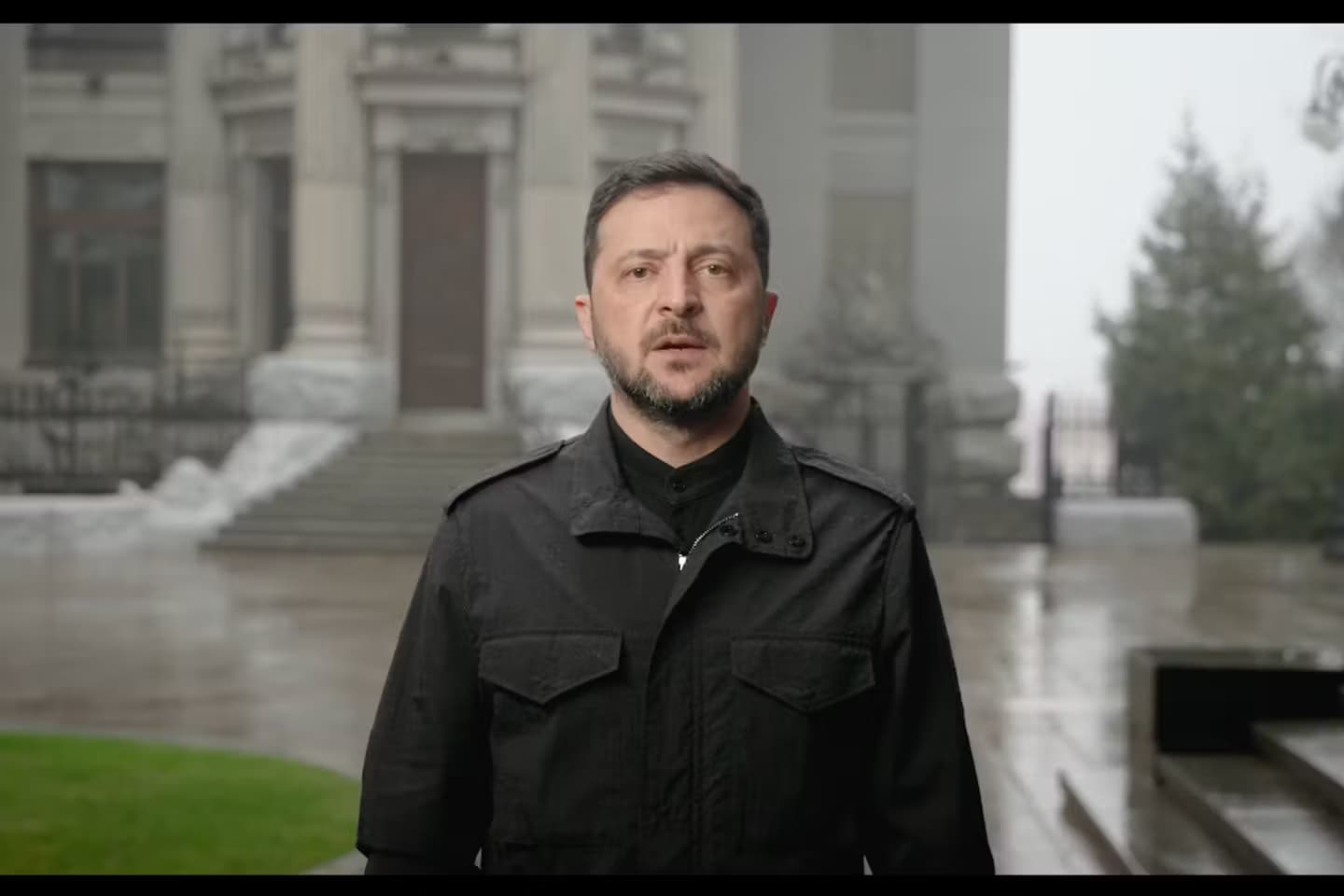We're loading the full news article for you. This includes the article content, images, author information, and related articles.
Ukrainian President Volodymyr Zelensky has warned the nation faces a choice between losing its dignity or a key ally over a controversial US peace proposal. The outcome holds significant weight for global stability and carries economic implications for Kenya

Ukrainian President Volodymyr Zelensky declared on Friday, November 21, 2025, that his country is confronting "one of the most difficult moments in our history," warning that a White House peace plan to end the war with Russia presents Kyiv with an agonizing choice: "either losing dignity, or risk losing a key partner." The statement, delivered in a sombre national address, underscores the immense pressure on Ukraine as the United States, its primary military and intelligence backer, pushes for a swift resolution to the conflict that began with Russia's full-scale invasion in February 2022.
The widely reported 28-point US proposal, drafted by President Donald Trump's special envoy Steve Witkoff and Russian envoy Kirill Dmitriev, contains several provisions that Ukraine has consistently rejected. According to multiple international news outlets, the plan would require Ukraine to cede the territories of Crimea, Donetsk, and Luhansk to Russia, formally abandon its aspirations to join the NATO alliance, and significantly reduce the size of its armed forces. In return, the plan offers Ukraine unspecified security guarantees and proposes the lifting of international sanctions against Russia.
US President Donald Trump has aggressively promoted the deal, suggesting a Thanksgiving deadline—Thursday, November 27, 2025—for Ukraine to accept the terms. "He'll have to like it. And if he doesn't like it, then they should just keep fighting, I guess," Trump stated on Friday from the Oval Office, adding that without a deal, Ukraine would "lose in a short period of time." The White House is reportedly threatening to cut off crucial support, including intelligence sharing and brokered weapons deals, if Kyiv does not agree to the proposal.
Conversely, Russian President Vladimir Putin has signaled his approval of the American framework. Speaking at a security council meeting on Friday, Putin said the plan could serve "as the basis for a final peace settlement," though he noted it had not been discussed in detail with the Kremlin. He asserted that Russia was prepared to "show flexibility" but was also ready to continue its military campaign.
While the front lines are thousands of kilometers away, the war's conclusion carries significant economic and diplomatic ramifications for Kenya and the broader East African region. The conflict has caused severe disruptions to global supply chains, leading to sharp increases in the prices of fuel, fertilizer, and essential food commodities like wheat and sunflower oil. These price shocks have directly contributed to a higher cost of living for ordinary Kenyans and strained the nation's agricultural sector. A sustainable peace agreement could stabilize volatile global markets, potentially easing inflationary pressures in Kenya.
Kenya is a significant importer of Ukrainian and Russian wheat. In 2023, Ukraine exported $35.2 million worth of wheat to Kenya. The war disrupted these vital shipments, exacerbating food security concerns, particularly during a period of regional drought. According to a 2024 report from the European Commission, the macroeconomic impact on Kenya was largely driven by global fertilizer and fossil fuel price hikes. The United Nations Development Programme noted that these disruptions slowed Kenya's economic recovery post-COVID-19.
Nairobi's official stance on the conflict has been one of principled neutrality, emphasizing respect for the UN Charter and territorial integrity. In an August 2025 statement, President William Ruto affirmed this position, stating, "dialogue, not war, is the path to peace." This diplomatic balancing act reflects a broader trend among African nations. However, the war has also had a direct, if unexpected, impact on Kenyan citizens. In November 2025, the government revealed that over 200 Kenyans, some lured by deceptive job offers, were fighting for Russian forces in Ukraine. President Ruto confirmed he had spoken with President Zelensky to secure the release of any Kenyans detained in the conflict zone.
As the diplomatic endgame intensifies, the nature of the final peace settlement will be closely watched in Nairobi. A resolution that stabilizes global commodity prices would be welcomed. However, a deal seen as rewarding aggression could set a troubling international precedent. For now, Kenya, like the rest of the world, awaits the outcome of the immense pressure being exerted on Kyiv, a decision that will shape the future of Ukrainian sovereignty and the global order.
Keep the conversation in one place—threads here stay linked to the story and in the forums.
Sign in to start a discussion
Start a conversation about this story and keep it linked here.
Other hot threads
E-sports and Gaming Community in Kenya
Active 9 months ago
The Role of Technology in Modern Agriculture (AgriTech)
Active 9 months ago
Popular Recreational Activities Across Counties
Active 9 months ago
Investing in Youth Sports Development Programs
Active 9 months ago